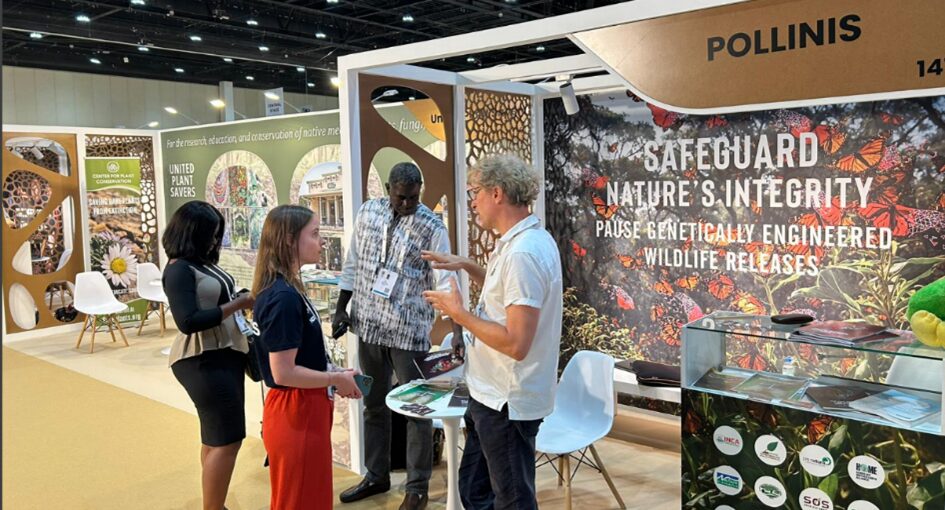World conservation authority divided on genetic engineering
Motion to stop the use of risky genetic engineering in nature conservation defeated by just one vote.
The International Union for Conservation of Nature (IUCN) held their annual congress in October, bringing together government and civil society organisations and setting strategies designed to protect nature and ensure the sustainable use of natural resources.
Civil society organisations led by Pollinis, the Coordinadora de la Organizaciones Indígenas de la Cuenca Amazónica (Coordinator of the Indigenous Organizations of the Amazon Basin, COICA), Nature Canada and others proposed a moratorium on genetically engineering wild species in natural ecosystems.
“Genetic engineering in conservation would mark a profound departure from established principles,” according to the Engineering Nature website. “Rather than safeguarding nature for its intrinsic value, conservation could shift toward redesigning nature to fit human preferences.“

Dr Guy Reeves, Save our Seeds, and Ali Tapsoba, Terre à Vie, in the exhibition hall. Photo credit: Save Our Seeds
The call for a moratorium was supported by more than 90 organisations from around the world. To pass, it needed more than 50% support from both governments and non-governmental organisations, and the vote was split down the middle. Among governments, the result was 87 in favour and 88 against, with just one government swinging the balance. Among non-governmental organisations, the result was 407 in favour and 323 against.
Ahead of the vote, GM Freeze wrote to more than 40 IUCN member organisations based in the UK, setting out reasons for endorsing the motion, including the fact that such technologies could permanently alter or eradicate species, triggering cascading effects across entire ecosystems. Furthermore, there is insufficient scientific evidence of possible outcomes, and no effective regulations to manage its risks.
In a separate vote, the IUCN adopted a policy on synthetic biology, endorsing its use in conservation. Synthetic biology was defined as a combination of science, technology and engineering to “facilitate and accelerate the understanding, design, redesign, manufacture and/or modification of genetic materials, living organisms and biological systems.”
The policy sets out a case-by-case approach for approving or rejecting synthetic biology proposals and was celebrated by biotechnology advocates. However, a last-minute amendment called for “additional precautionary safeguards”. This was supported by 54 percent of both government and NGO votes.
More than 100 scientists––including contributors to the Intergovernmental Science-Policy Platform on Biodiversity and Ecosystem Services (IPBES) published an open letter before the IUCN Congress, warning that releasing genetically engineered organisms into ecosystems could cause irreversible ecological damage.



